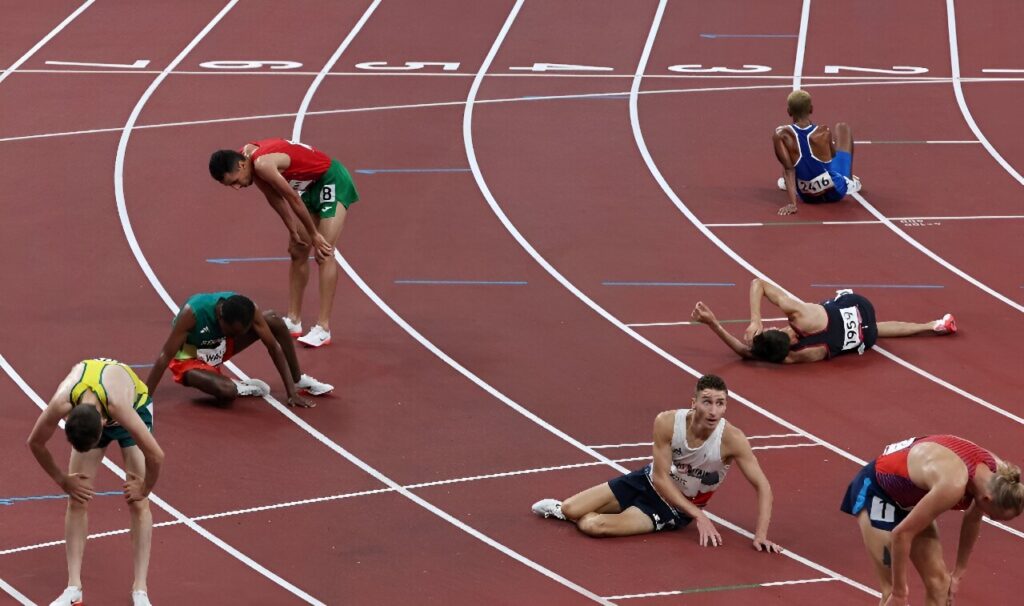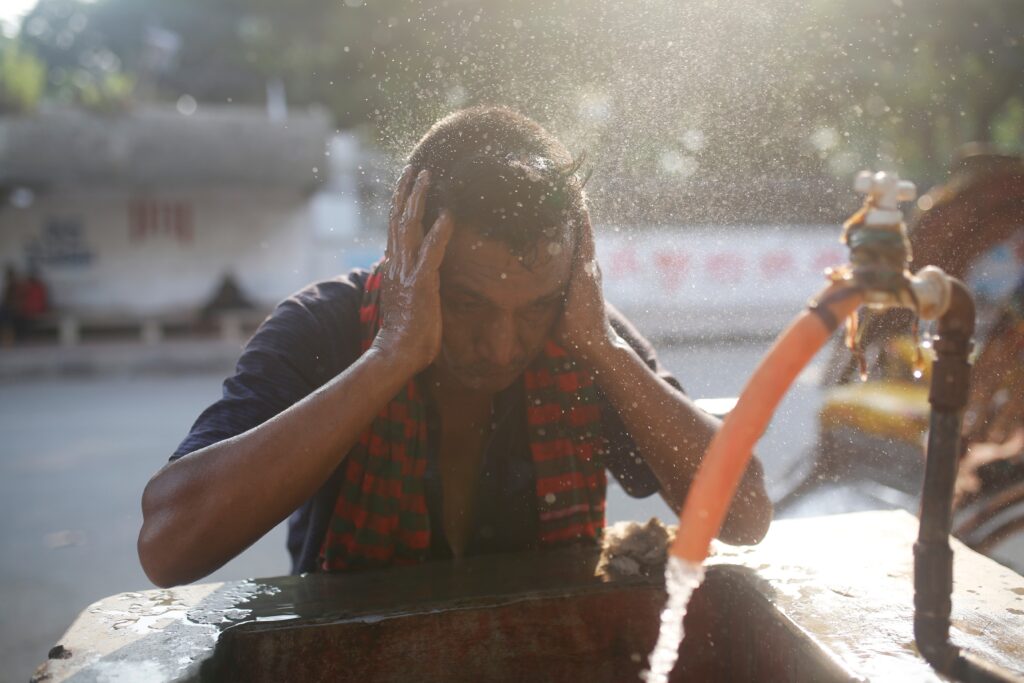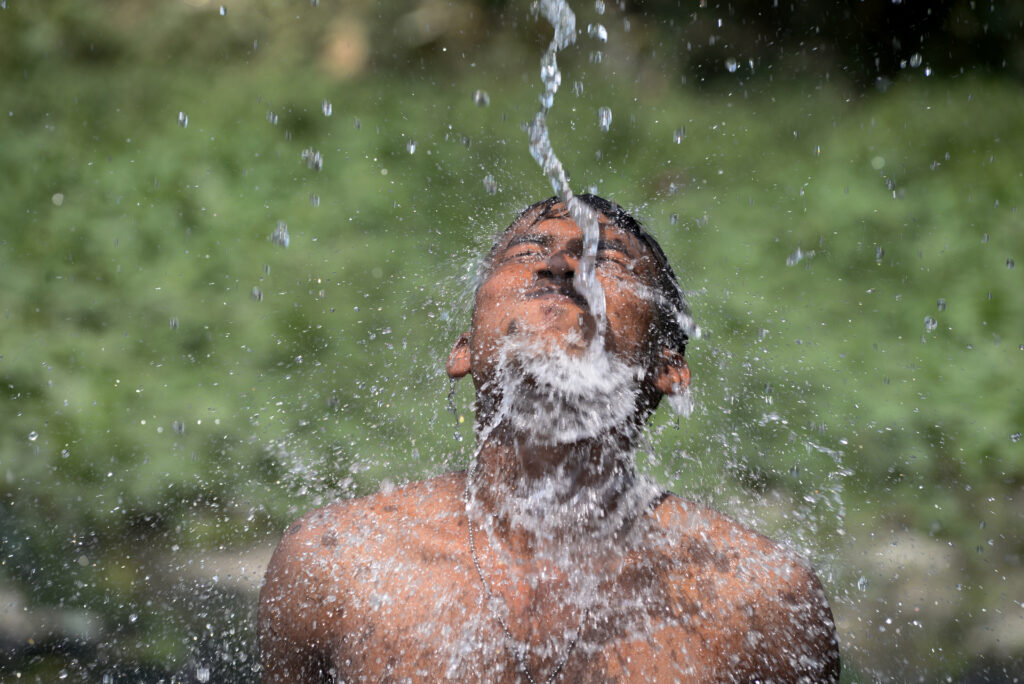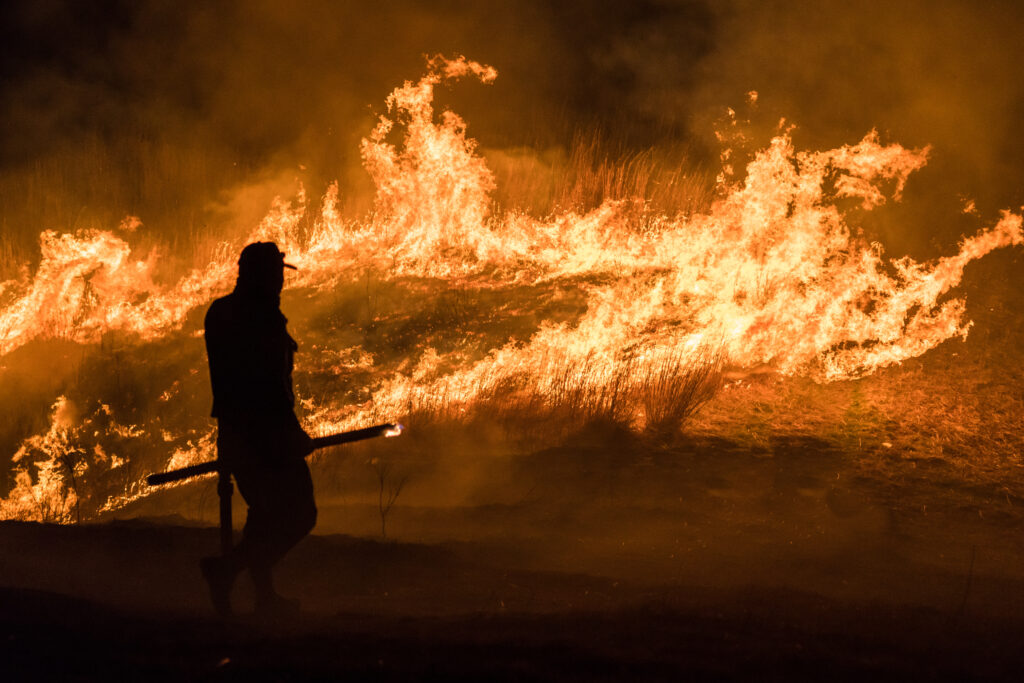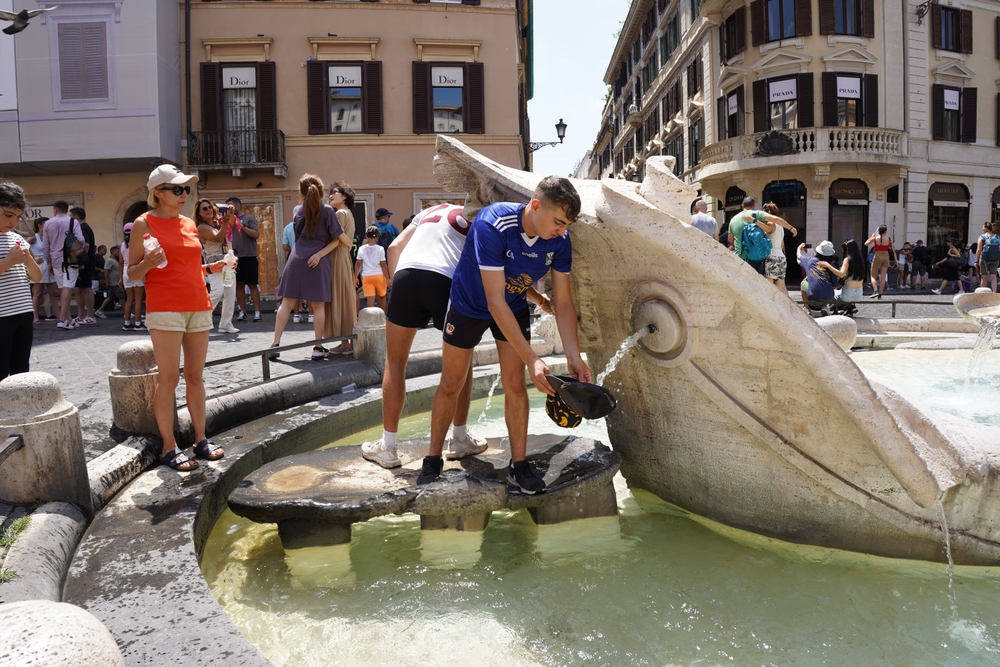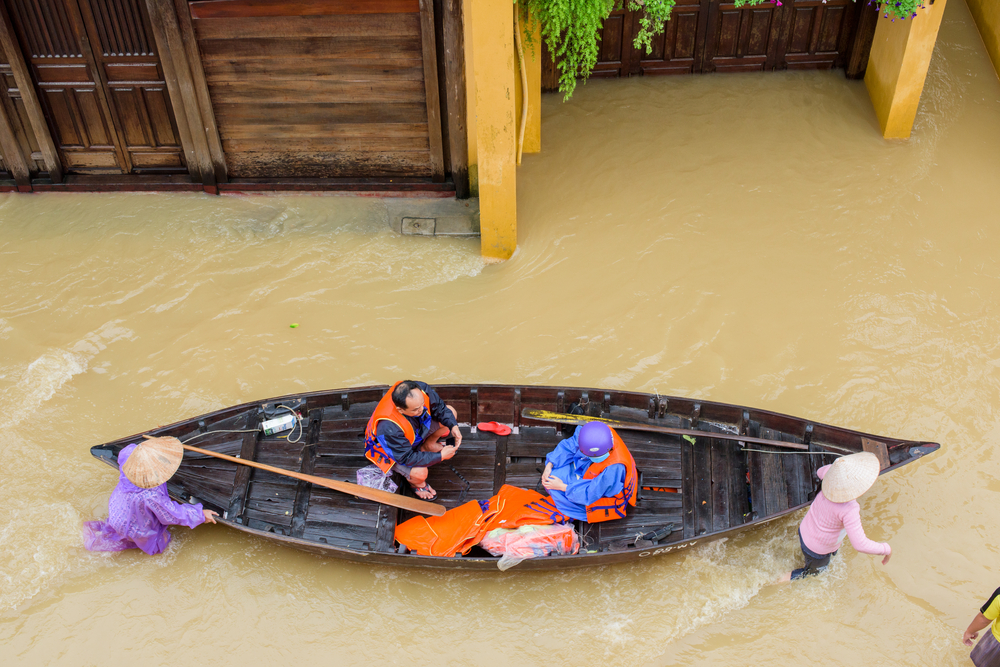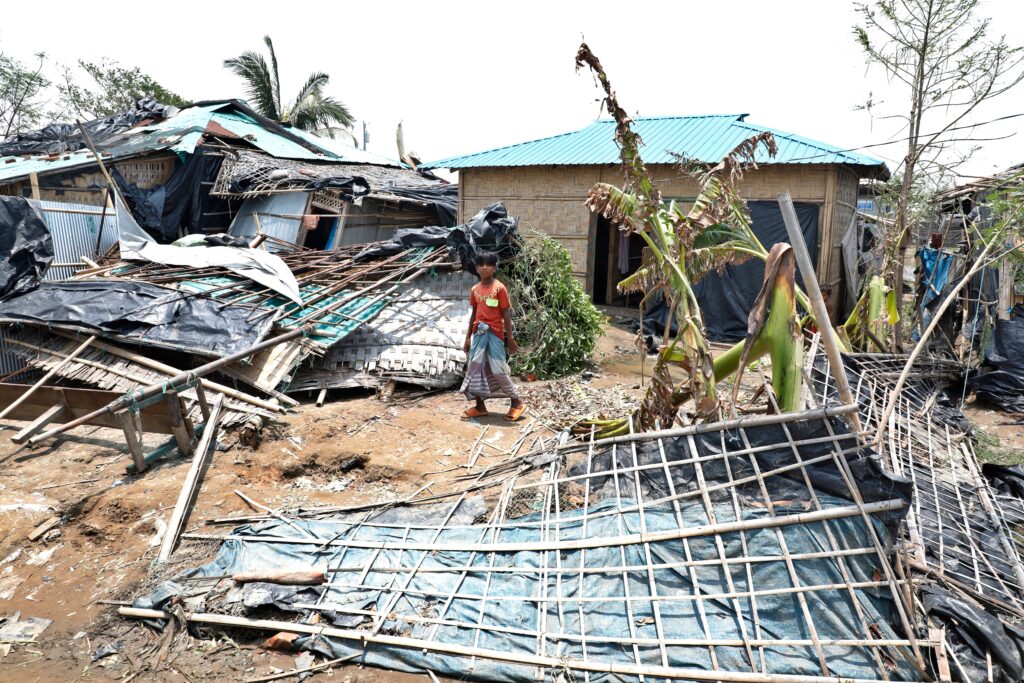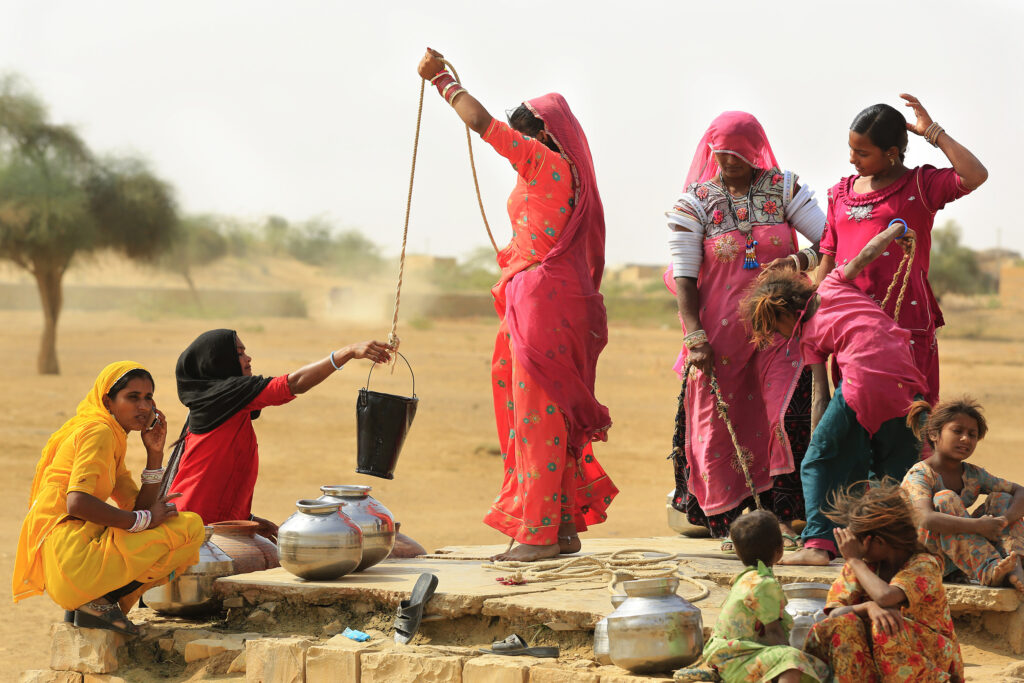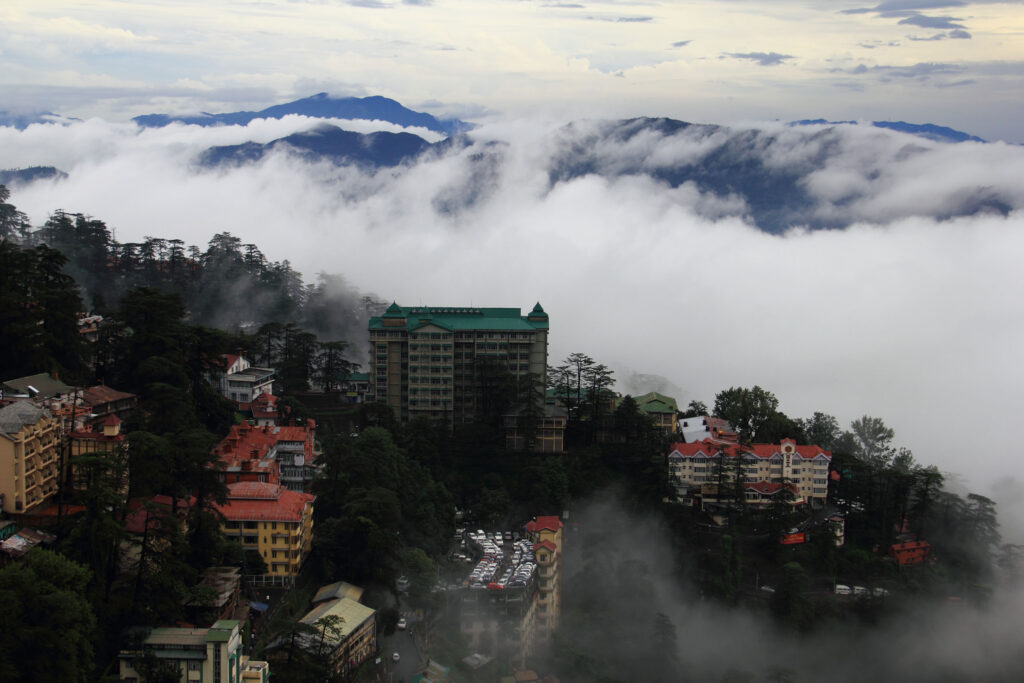We’ve been promised that Paris 2024 Olympics will be the greenest in history, showing how sports can take the lead on powerful climate change solutions. As one of the most watched and celebrated sporting events in the world, the Games presents a powerful platform to promote and inspire climate action on a global scale.
Robust and comprehensive action is long overdue. Major events like the Olympics leave an enormous climate and environmental footprint on the planet. The 2016 Rio Games resulted in an estimated 3.6 million tonnes of carbon dioxide (CO2) emissions, more than 17,000 tonnes of waste and ecosystem damage to habitats of endangered species.
Simultaneously, climate impacts and extreme heat caused by these emissions pose a direct and severe threat to the health of event athletes, spectators and organisers. The report Rings of Fire: Heat Risks at the 2024 Paris Olympics shares stories from athletes of the unbearable and dangerous conditions they endure, with climate change-driven extreme heat leaving them fearing for their safety.
2024 Paris Olympic Games and Climate Change Solutions
Paris 2024 organisers have gone to great lengths to limit the climate and environmental impact of the Games, setting a carbon budget of 1.5 million tonnes of CO2 equivalent — roughly half those of previous events. A comprehensive set of measures features an innovative energy model that includes 100% renewable power, renting rather than buying the majority of sports equipment and screens and minimising material waste. Additionally, they aim to leave a lasting positive legacy by enhancing public transport infrastructure, increasing green spaces and promoting sustainable urban development in the area.
Organisers also say they are “fully aware” of the heat risks at Paris 2024, and have brought in measures to safeguard competitors and spectators. Specific heat preparation protocols and on-site care include physician-provided acclimatisation plans and indoor facilities built to handle the scorching temperatures.
Strengthening Climate Change Solutions: Sports Fit For The Future
Undeniably, the Paris 2024 organisers have set a strong precedent for sustainability for future events. Yet, likewise, the Tokyo 2020 Games were dubbed the “greenest” Games to date at the time, and since 2000, every host city has worked towards hosting a more sustainable Olympics. Given that global climate emissions continue to rise – as does dangerous heat worldwide – some argue that it’s time for an innovative change to fully address the scale of the crisis.
Researchers Offer A Powerful Solution: Reimagining The Olympic Model
Researchers from Carbon Market Watch applaud the Paris organisers efforts to think sustainably. However, their analysis of the Paris 2024 carbon budget shows that by far, the major sources of climate emissions relate to the event’s massive construction projects, which make up 32% of emissions, and the need for extensive international travelling, which makes up 40%. This reality significantly undermines the painstaking sustainability efforts elsewhere, the researchers said.
“The Paris 2024 Olympics have promised a green transformation of the Games, but have only delivered marginal improvements,” explained Benja Faecks from Carbon Market Watch.
Making the Games compatible with a 1.5°C world in its current form is “impossible”, the researchers conclude. “No emissions reduction at a meaningful level will be possible without seriously tackling the immense size of these events,” explained César Dugast, co-founder of éclaircies.
The researchers propose an alternative: a reimagined hosting model that assigns different sporting disciplines to different countries, while restricting attendee access to those who can reach the Games over land. “Imagine the exciting prospect of athletics events held in Mexico City, aquatic sports in Buenos Aires, team sports in Nairobi, combat sports in Seoul, racquet sports in Warsaw, cycling sports in Ankara, gymnastics in Jakarta,” they said. Not only could this dramatically limit the environmental impact of the Games, but many more people could also experience the event in person – enhancing the reach of Olympic values.
Reducing a Key Carbon Source in Sport
Outside of the Olympics, much of the climate impact from sports can be attributed to the travel involved, whether from competitors, volunteers, staff, and spectators. For some major sporting events, travel can cause over 85% of the emissions.
Athletes are also voicing their concerns about the extent of travel involved in their international competitions. Pragnya Mohan, India’s highest-ranking triathlete, told Climate Impacts Tracker Asia (CITA) of an athlete who missed the World Championships to avoid the climate impact of the air travel involved. It’s time for federations to plan competition circuits to minimise the damaging climate impact of long-distance travel, she said.

Cutting Ties With Climate Polluters
Another powerful, yet often overlooked, solution is for sport to end its connections with planet-wrecking fossil fuel companies. As explored in part two, taking sponsorship from climate polluters, such as ArcelorMittal and Toyota, significantly undermines the Olympic Games’ on-ground sustainability efforts. These companies have a climate footprint the size of entire nations, mislead the public about their harmful impacts and lobby against vitally needed climate action — all while using the Olympics to greenwash their image.
Ahead of Paris 2024, Olympians are calling for the Olympics to drop Toyota as a sponsor. They say the company is “abusing” its position as a Games sponsor — including using petrol-fuelled cars at the so-called fossil fuel free event. “Withdrawing access to this platform for big polluters, and offering it at attractive conditions to clean actors, is the next step to take,” said Gilles Dufrasne from Carbon Market Watch.
Athletes Voice The Change They Need
While the Olympics and sports more widely must take strong action to limit their harm to the planet, keeping athletes safe from climate change-driven heat is also imperative.
In response to rising temperatures, World Triathlon, the sport’s international governing body, has been proactive in providing athletes and federations with information to help them prepare for extreme conditions, highlight the Ring of Fire authors. Measures include the creation of the “Beat the heat” document and the implementation of temperature parameters.
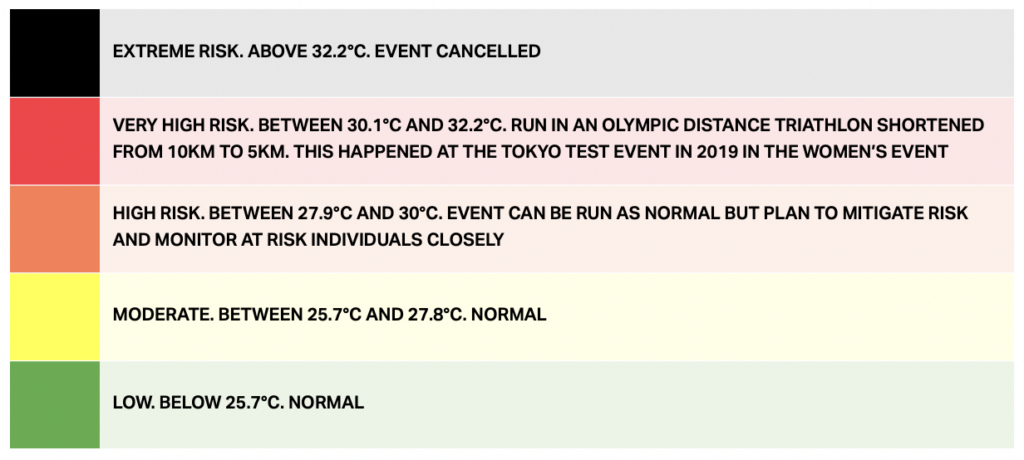

While these are vital, life-saving measures, athletes sharing their experiences make clear that there is far more to do.
Expanding Heat Safety Parameters
Applying temperature safety parameters is not yet widespread, for example. Athletes also raise concerns about grassroots sports, which may not have such robust awareness and safety measures in place. Extreme heat is a “silent killer” and threatens the lives of competing athletes, said Australian racewalker and two-time Olympian Rhydian Cowley. “For sports that do not have a science-based extreme weather policy, and for grassroots sports with fewer resources with which to adequately respond to extreme heat, it is a genuine worry that athletes’ (and officials’) health and safety will be endangered in extreme heat events.”
Speaking to CITA, Pragnya Mohan echoed this issue, highlighting a lack of awareness about climate impacts on athletes in some sports. Sponsors – who may have limited knowledge of a sport – often dictate competition terms. They may prioritise brand visibility and spectator numbers over athletes’ performance and well-being – leading to events being scheduled during times of deadly heat. “There should be more importance given to athletes’ well-being and needs, because ultimately, they are central to the entire industry,” said Pragnya.
Adapting to Heat
Heat adaptation measures themselves can also be highly problematic. Athletes highlight the gruelling adaptations they must endure to meet the growing challenges and dangers of climate change-fuelled heat. “We have done the most ridiculous heat protocols leading into major events,” said New Zealand hocky player Hugo Inglis. “Training in heated rooms, with additional clothing on. Then in the sauna for 30 minutes after sessions.” Inglis also says that pre-match ice baths used to try to counter the heat ended his Tokyo dream early. He added that many athletes are too afraid to speak out about playing in severe conditions: “The current environment is one of fear”.
Australian Olympic medallist and two-time World Champion in javelin, Kelsey-Lee Barber, also raises concerns that heat adaptations could lead to complacency in tackling the root cause of extreme heat. “I think it’s concerning how quickly this has become a reality,” said Barber. “While we have adapted to the likelihood of competing in extreme heat, the bigger picture of why we are experiencing it isn’t being addressed, it’s just been accepted and planned for.”
Underpinning these concerns is that no adaptations can ever go far enough to keep athletes, or anyone, truly safe in the “unsurvivable” heat conditions predicted for the future.
Climate Threats Loom Large Over Future Games
The United States and Australia will host the next two Summer Olympics, and contenders to host the 2036 Games include India, Turkey and Indonesia. These locations – already prone to high and rising temperatures – will lead to even greater dangers from extreme heat in the coming years, Ring of Fire authors said.
The Winter Olympics, reliant on the planet’s disappearing snow, are also threatened by heat. Climate change could mean by 2050, cities that hosted Games may be too warm to ever host them again.
Racing to Fight the Climate Crisis
While climate change solutions in sports are advancing, change is not coming fast enough. The 2018 UN Sports for Climate Action Framework encourages sports entities to commit to five key principles to reduce climate and environmental impacts and halve emissions by 2030. Yet, five years on, less than 0.1% of sporting industry organisations had signed up.
With the future of sports under threat, and athletes already struggling to stay safe, it is time for the entire industry to fully engage in this crisis and take its responsibility for climate harm seriously. This harm extends to all of humanity, too. In the report, World Athletics President Lord Sebastian Coe shared the sobering reality that at least a dozen World Athletic Member Federation countries will be uninhabitable by 2060. “There has never been a greater need for heightened awareness, discussion and research into what is happening on the planet and why. Sport is just one part of that, but we cannot be spectators, we must all play a role,” said Lord Coe. “We are in a race against time. And this is one race that we simply cannot afford to lose.”
Read Part 1 and Part 3 of this article series here.
The Ring of Fire Report was produced by FrontRunners and BASIS, with acknowledgements to Climate Central, Professor Mike Tipton (University of Portsmouth), and Dr Jo Corbett (University of Portsmouth). You can download the report choosing from English, Swahili or Japanese her
Evelyn Smail
Writer, United Kingdom
Evelyn is a freelance writer and journalist specialising in climate science and policy, the just energy transition and the human impacts of climate change. She writes for independent publications, NGOs and environmental organisations. Evelyn has a background in sustainable development, climate justice and human rights.
Evelyn is a freelance writer and journalist specialising in climate science and policy, the just energy transition and the human impacts of climate change. She writes for independent publications, NGOs and environmental organisations. Evelyn has a background in sustainable development, climate justice and human rights.


